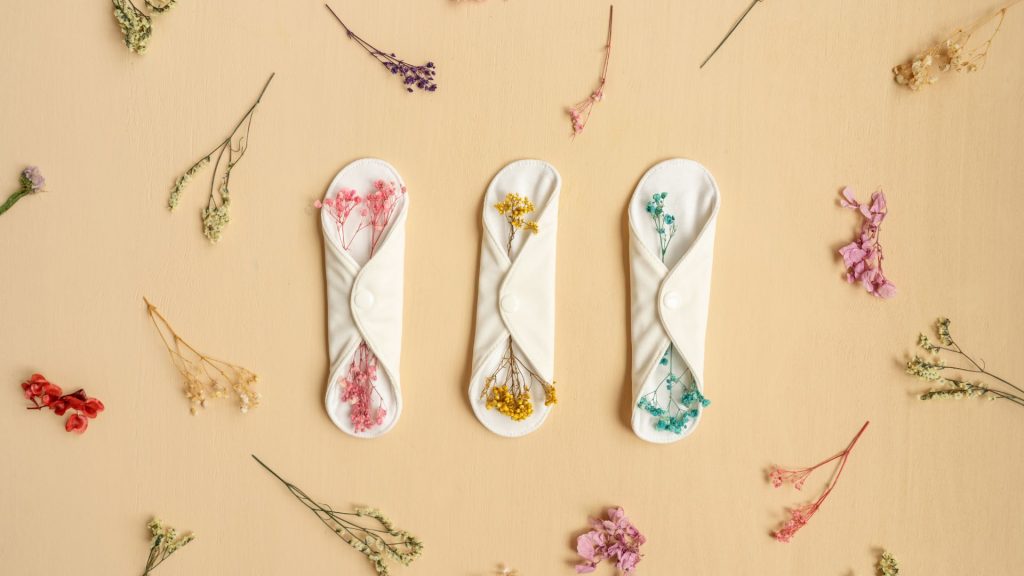Women dispose of up to 16,000 feminine hygiene products over their lifetime – from pads, tampons and applicators – this waste takes up space in landfills, clogs sewers and pollutes the ocean with microplastics.
Switching to eco-friendly feminine care is a simple yet effective way to reduce waste, from reusable menstrual cups and organic cotton pads to other sustainable options – this guide will help you find what is most suitable.
Organic
Eco-friendly feminine hygiene products have experienced an upsurge in demand due to a greater focus on personal health among working women, who are also keen on protecting the environment. Furthermore, many conventional menstrual hygiene products contain harmful chemicals which penetrate vaginal walls and may lead to long-term health concerns.
Organic pads and tampons are made of organic cotton that is free from pesticides and synthetic materials, such as dyes or fragrances. On the other hand, nonorganic alternatives often contain regular cotton treated with harsh chemicals as well as rayon and metal dyes that alter its colour.
Chemical combinations found in traditional tampons have been linked with numerous health issues, such as bacterial infections and toxic shock syndrome. Furthermore, traditional tampons were found contaminated with per- and polyfluoroalkyl substances (PFASs), linked with reduced fertility, high blood pressure in pregnant women, birth defects, reduced immune system function, hormonal imbalance and cancer among other health concerns.
Biodegradable
Though many women recognize and fight single-use plastic straws and bags as waste sources, women often overlook menstrual products when making eco-friendly decisions. Unfortunately, an average woman will dispose of approximately 400 pounds of pads and tampons throughout their lifetime – creating massive amounts of trash.
Many disposable period products contain harmful chemicals and synthetic materials, which may cause adverse health impacts. To reduce environmental impacts, organic cotton tampons and biodegradable feminine hygiene products should be prioritized as environmentally-friendly options.
SHERO Pad uses a processed form of algae mixed with cotton and the same material used to make tea bags to produce a 100 percent biodegradable maxi pad that’s more comfortable than traditional ones. Other sustainable options such as cloth pads from Natracare, Ohne, and Albany Mae that can save both money in the long run and reduce plastic pollution should also be considered as potential sustainable choices.
Reusable
Disposable sanitary pads and tampons contain chemicals known to disrupt hormones, cancer-causing carcinogens, or irritating ingredients which pollute waterways and landfills. Furthermore, they are non-biodegradable so polluting further our environment while irritating skin with some women suffering dermatitis due to this contact dermatitis causing irritations as well as scents which make matters worse – but there’s good news: you can switch over to reusable pads which will be better for both you and our planet!
Women can select eco-friendly feminine hygiene products like cloth menstrual pads or cups with reduced environmental impacts to help alleviate issues experienced in poor countries who struggle with accessing or affording traditional feminine hygiene products. While they may cost more initially, their longevity makes recycling easy – and an additional grant or purchase can also be given directly to women living in refugee camps and areas affected by natural disasters, helping ease period poverty for these vulnerable populations.
Sustainable
After the COVID-19 lockdown, NYU Shanghai Undergraduate Coordinator of IMA Marcela Godoy and Visual Arts and Humanities Professor Monika Lin started hosting menstrual hygiene workshops to raise awareness about more eco-friendly options for feminine care. Their initiative provides access to reusable menstrual products like menstrual cups and cloth pads which are better for both individual health and the environment than disposable tampons and pads.
Menstrual cups and cloth pads can significantly cut costs and plastic waste associated with traditional feminine care products, while also being more comfortable than tampons which tend to stick and irritate vagina. A single menstrual cup can last many years – saving both money and protecting women from harmful chemicals and toxins.


